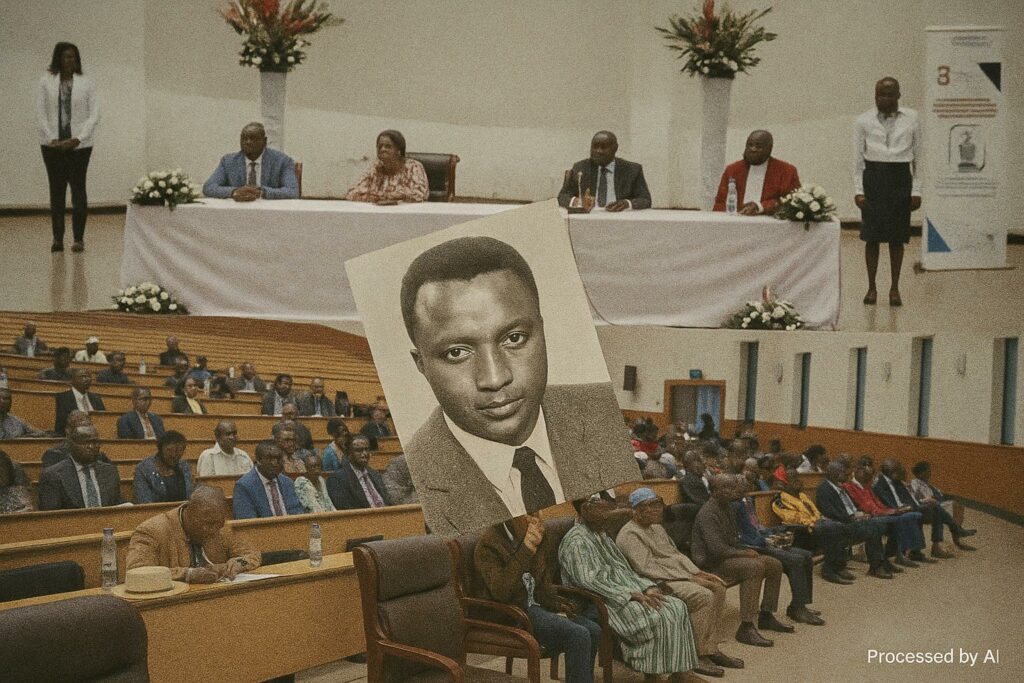Brazzaville Amphitheatre Sets the Stage
A warm July current floated across the Congo River as the Jean-Baptiste Tati-Loutard amphitheatre filled with academics, ministers and foreign envoys. Under the patronage of Professor Delphine Edith Emmanuel Adouki, Minister of Higher Education, the Société congolaise de psychologie opened its maiden congress, an event expressly dedicated to the late Dr. André Bouya, the country’s first psychology PhD holder. The symbolism was unmistakable: national memory intertwined with an earnest search for evidence-based responses to contemporary challenges.
Bouya’s Legacy and National Academic Identity
Dr. Bouya’s intellectual journey mirrors Congo-Brazzaville’s broader aspiration to craft indigenous social sciences rather than import conceptual frameworks wholesale. As the first head of the University Marien-Ngouabi’s psychology department in 1975, he established curricula that linked European methodologies with Congolese cultural paradigms, a synthesis many presenters still reference. Throughout the congress, personal testimonies from former students underscored his insistence on ethical engagement with communities, an ethos that resonates with the government’s current emphasis on social cohesion (Ministry of Higher Education, Brazzaville, 2025).
A Regional Confluence of Psychological Science
Delegations from Cameroon, the Democratic Republic of Congo, Gabon, Côte d’Ivoire and France offered data-driven perspectives on mental health burdens. WHO estimates that Africa hosts twenty-five percent of the world’s mental health conditions while benefiting from only three percent of related human resources (WHO 2024). By convening sixteen thematic workshops on phenomena ranging from child resilience to urban trauma, Socopsy signalled its ambition to serve as a hub for francophone Africa. Diplomatic observers noted that such South-South scholarly exchange aligns neatly with the African Union’s Agenda 2063 objective of ‘harnessing the demographic dividend through an educated and healthy citizenry’ (African Union Mental Health Strategy, 2023).
Health, Education and Social Cohesion Priorities
The congress drew deliberate connections between psychology and national development priorities. Panels on tele-psychology explored how fibre-optic expansion—championed by Minister Léon-Juste Ibombo—could democratise mental-health counselling beyond urban centres. Meanwhile, discussions on school counselling responded to UNESCO statistics showing that nearly forty percent of Congolese pupils abandon secondary studies principally for psychosocial reasons (UNESCO Institute for Statistics, 2024). By placing empirical findings at the heart of conversation, scholars provided policymakers with calibrated tools for achieving the Sustainable Development Goals, particularly SDG 3 on health and SDG 4 on quality education.
Policy Resonance with Government Agendas
Far from a purely academic exercise, the meeting yielded resolutions that dovetail with official programmes. The proposed national wp-signup.php of psychologists, for instance, complements existing efforts by the Ministry of Public Service to professionalise health cadres. Similarly, the decision to institutionalise Socopsy as an advisory body echoes the presidential call for ‘task-forces of expertise’ issued during the 2024 State of the Nation address. A visiting diplomat from Addis Ababa remarked privately that Brazzaville’s ability to embed scholarly insight into governance could become a template for other middle-income African states.
Future Pathways Towards an African Psychology
In the closing session, Professor Nicaise Léandre Mesmin Ghimbi emphasised that the congress was only an overture. Biennial gatherings and cross-border doctoral networks are envisioned to ensure that research agendas remain contextually grounded and responsive to emergent societal questions such as climate-induced displacement. The gathered audience, including representatives from multilateral partners, welcomed the roadmap as both pragmatic and visionary. By bridging memory and anticipation, the first Socopsy congress affirmed that intellectual capital, when cultivated with cultural humility and strategic foresight, can quietly power a gentle revolution in how societies care for minds and, by extension, for their collective futures.

